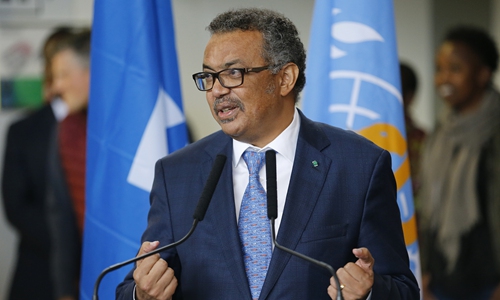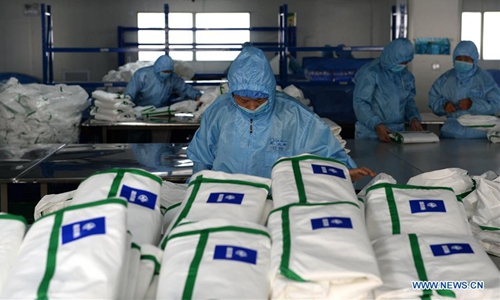Airbnb, the most popular of the home-sharing sites, has an estimated 2 million listings worldwide, with revenue of about $2.4 billion in the U.S. last year. Above, Echo Park Airbnb host Jonathan Entler, top left, and his daughter Ruby, top right, talk to guests James Green and Camille Smithwick in 2014. (Damian Dovarganes / Associated Press)
Tired of "sterile hotels," Brooklyn resident Kelly Dwyer turned to home-sharing site Airbnb three years ago when planning a Southern California trip, finding a Silver Lake apartment that came with two roommates: a dog and a cat.
"It was such a good experience that it sort of pulled me in," said Duncan, 40, a pet owner and musician. "I can't remember the last time I stayed in a hotel."
Hotel executives have long shrugged off Airbnb and other short-term rental websites. The home-sharing businesses weren't considered a threat to the $176-billion hotel industry because they were believed to primarily serve penny-pinching millennials.
But eight years after Airbnb launched with a single air mattress for rent in a San Francisco loft, the hotel industry is starting to worry that short-term rental sites may pose a serious problem. Not only is the company expanding, there is evidence that competition from rental sites is holding down hotel rates in some areas.
Airbnb, the most popular of the home-sharing sites, has an estimated 2 million listings worldwide, with revenue of about $2.4 billion in the U.S. last year. The business has been valued at $24 billion, higher than the $21-billion valuation of hotel giant Marriott International.
Even more concerning for hotel managers is Airbnb's torrid growth. In Los Angeles County, Airbnb listings increased 42% in the seven months ended in January, a Times review found. In some neighborhoods, the increase was much larger.
"Hotel companies are going to start paying a lot more attention to Airbnb now that their numbers are as big as they are," said Jamie Lane, a senior economist for the hotel research arm of real estate firm CBRE.
The industry came out firing recently with a study contending that a growing number of Airbnb landlords are really running "illegal hotels" in major cities, including Los Angeles, which lets them avoid taxes and regulations that hoteliers pay.
If Airbnb is impacting hotels in any way, it's in the ability to raise rates. — Brandon J. Feighner, director, CBRE hotel valuation and advisory services
That study, by the Pennsylvania State University School of Hospitality Management, concluded that nearly 30% of Airbnb's revenue in 12 big cities comes from people who rent out their properties at least 360 days a year, drawing an average of more than $140,000 annually.
Traditional hotels welcome competition, said Vanessa Sinders, a spokeswoman for the American Hotel & Lodging Assn., the trade group for the nation's 53,000 hotels, which commissioned the study. But she added that the growing number of Airbnb properties operating year-round aren't required to meet the health, safety and cleanliness standards that hotels must maintain.
"Competition in our industry thrives because everyone plays by the same set of rules designed to protect homeowners, guests and communities," she said.
Airbnb rejects such contentions, saying most of their hosts live in the homes they rent.
"In Los Angeles, 82% of Airbnb hosts in L.A. share the home in which they live, and furthermore, 80% of entire home listings in L.A. are rented for less than 90 days a year," Airbnb spokeswoman Alison Schumer said.
Hotels and online travel sites clash over booking scams Hotels and online travel sites clash over booking scams
Nationwide, Airbnb lists about 173,000 units, equal to about 3.5% of the more than 5 million rooms rented out by traditional hotels — not enough to pose a serious threat to the hospitality industry, according to a study by CBRE's hotel research arm. The study analyzed Airbnb's operations from October 2014 to September 2015.
The study goes on to say that Airbnb properties have started to pressure hotels to keep rates low in a handful of cities where home-sharing units are plentiful, including Los Angeles, San Francisco and New Yorks.
In Southern California, Airbnb may be keeping hotel rates from skyrocketing in areas such as Santa Monica, Hollywood, Beverly Hills and Marina del Rey, according to CBRE.
For example, hotel room rates around Los Angeles International Airport rose nearly 13% in 2015 over the previous year while rates in the Santa Monica and Marina del Rey area increased only 5.6%, CBRE found.
See more of our top stories on Facebook >>In Santa Monica and Marina del Rey, Airbnb has one bedroom listed for every two hotel rooms, the report said. Around the airport, Airbnb has one room listed for every 4.4 hotel rooms.
In addition, Airbnb's rates around Santa Monica and Marina del Rey are nearly 30% lower than the hotel rates in the same area, according to the CBRE report. Around LAX, the Airbnb rates are 8% cheaper than hotel rates.
"If Airbnb is impacting hotels in any way, it's in the ability to raise rates," said Brandon J. Feighner, director of CBRE hotel valuation and advisory services.
Another area in Southern California where hotel rates may be held in check by Airbnb is Venice, where the home-sharing site had 1,741 listings in early January, according to data collected by Inside Airbnb, a site that tracks the company's short-term rentals.
That figure was 25% higher than the number of listings in May 2015, a Times analysis shows. The tourist-friendly area leads all Los Angeles County neighborhoods for Airbnb listings, ahead of Hollywood and Santa Monica.
Mark Sokol, an owner of the 120-room Hotel Erwin in Venice, said he feels pressure to keep his rates low because too many short-term rentals in Venice have turned into illegal hotels that operate year-round and don't pay the fees and workers' salaries of traditional hotels.
"When you have that much supply, it definitely has price pressure," he said.
Some hotel owners say they don't worry about competition from Airbnb because only hotels can offer guests the assurance of a clean room, with amenities such as a coffee maker, a television and a comfortable bed.
"Hotels are going to provide a standard hotel experience whereas Airbnb can be an adventure or a nightmare," said Ken Pressberg, owner of the Orlando, a 95-room boutique hotel near the Beverly Center.
See the most-read stories this hour >>http://www.latimes.com/business/la-most-read-stories-this-hour-story.html
As young travelers advance in their careers and earn more money, he said he believes they will eventually abandon Airbnb for traditional hotels.
A survey of 1,650 adults by the travel search site Hipmunk found that 74% of millennials have stayed in a home-sharing property for a business trip, compared with just 38% for Gen Xers and 20% for baby boomers.
To lure young people away from short-term rentals, many hotel owners are investing in their properties, such as upgrading Wi-Fi speeds in the lobby, adding electronic tablets in the rooms and offering meals and drinks that are unique to their hotels.
"Airbnb is just another competitor that you have to keep your eyes on," said Phil Anderson, general manager of the DusitD2 Constance Hotel in Pasadena.
But for many young travelers, the quirky extras found at Airbnb properties are what attract them — extras they won't find at traditional hotels.
Tasmin Lofthouse, a 22-year-old marketing assistant from Blackpool, England, said she has booked an Airbnb property for her trip to Los Angeles in June because she wants to avoid the "commercialized and touristy" setting of a hotel.
"From what I've seen so far, Airbnb hosts are willing to go the extra mile, and some even let you help yourself to any homegrown vegetables or fruit they may have," she said. "I doubt you'd see that at a hotel."
Hotels and online travel sites clash over booking scams
The websites for Expedia and Orbitz Worldwide are seen next to each in a photo illustration. Hotels and online travel sites like Expedia are feuding over the real danger of booking scams. (Joe Raedle / Getty Images)
A battle is heating up between online travel sites and U.S. hotels over the best way to book your hotel room.
Like most things in business, the feud comes down to money.
The American Hotel and Lodging Assn., the trade group for hotels in the U.S., is pushing for legislation to crack down on fraudulent online booking sites that trick travelers into paying for hotel rooms but have no relation to the hotels. The group says the scams cost travelers up to $1.3 billion a year.
A coalition of online travel sites isn't buying it. The sites say the hotel industry is exaggerating the online scam problem to push travelers to book directly on hotel sites so that hotels can avoid paying sales commissions to the online booking sites.
“It's just a veiled attempt at trying to scare consumers to book directly with the hotel chains themselves,” said Philip Minardi, a spokesman for the coalition of online sites, including Expedia, Priceline and Airbnb.
 Hotel chains launch Wi-Fi war
Hotel chains launch Wi-Fi war http://www.latimes.com/business/la-fi-hotel-chains-launch-wifi-war-20141226-story.html
The stakes are high in this feud. Travelers make an estimated 480 online hotel bookings per minute in the U.S. Hotels pay third-party booking sites commissions of up to 25% of the room price. Hotels also want travelers to book directly from them so they can pitch future deals and packages and develop guest loyalty.
Hotel industry officials reject suggestions that they are using the scams to scare travelers away from outside booking sites.
“The fact is online scams are hurting consumers and jeopardizing their confidence in the online booking process, while also harming the reputation of hotels,” said Katherine Lugar, president and chief executive of the hotel trade group.
BY Hugo Martin/Los Angeles Times
Related post:Homestays, a booming business HOMESTAYS, once popular in rural areas, have now become big businesses in towns and cities nationwide...

























